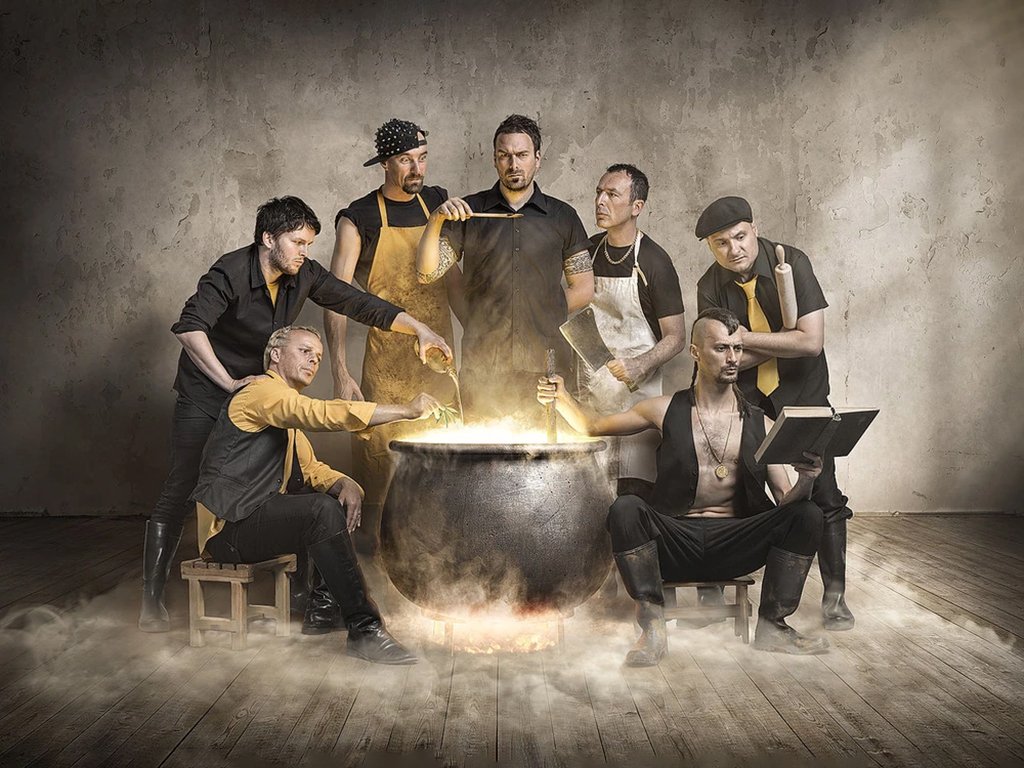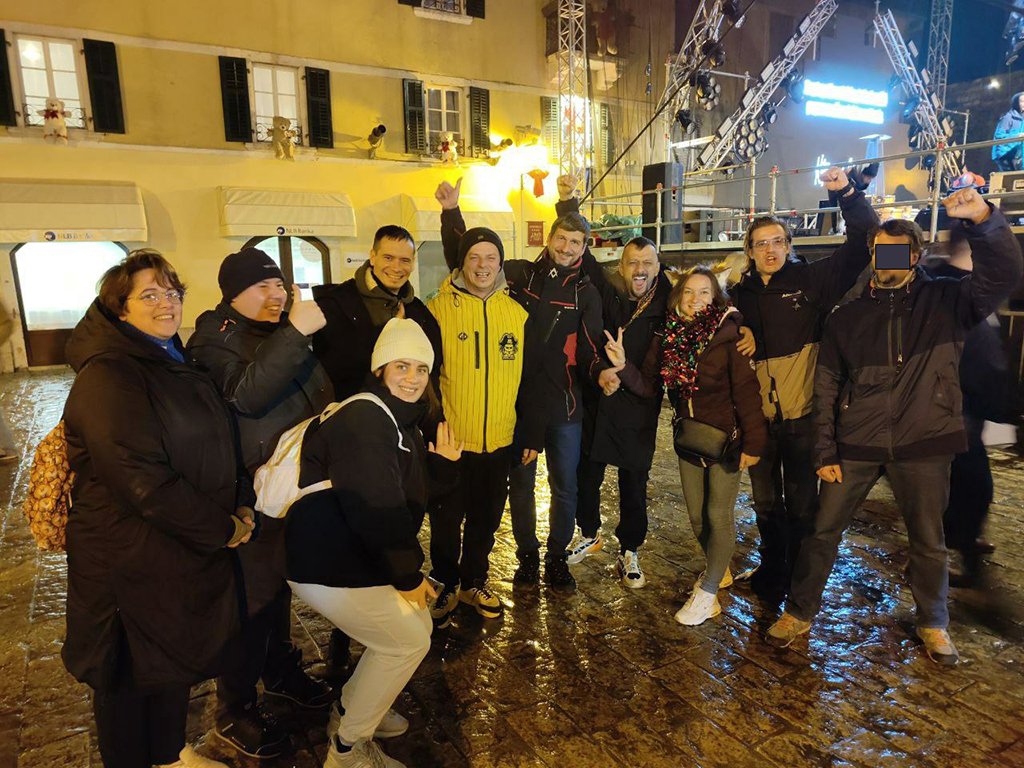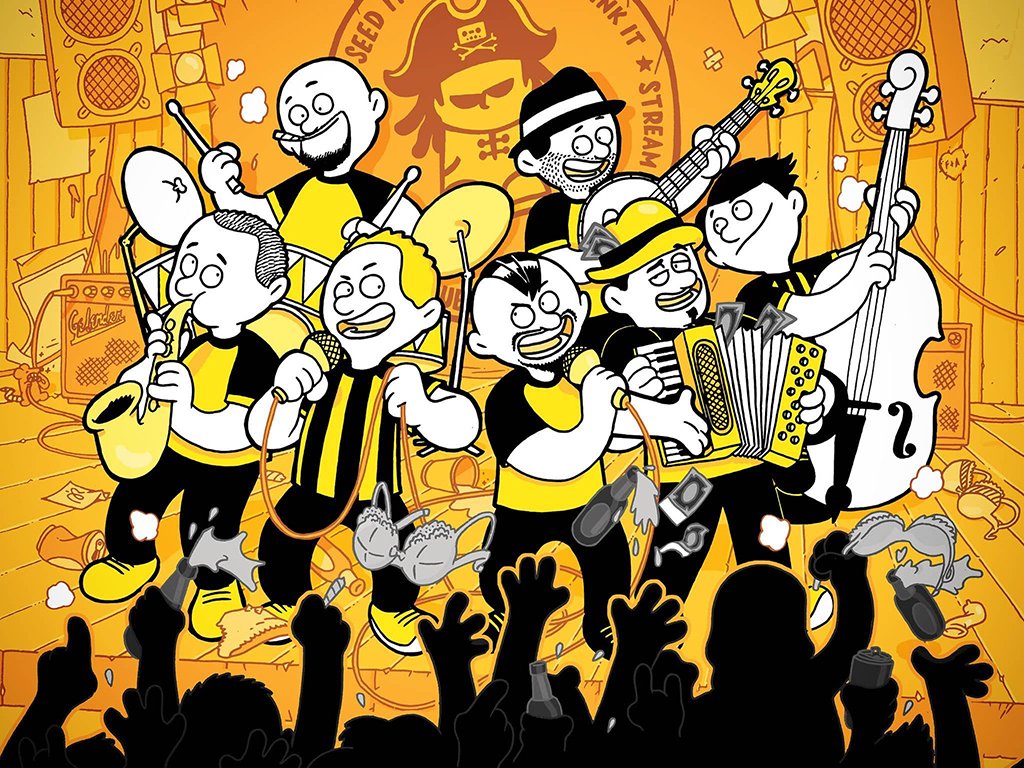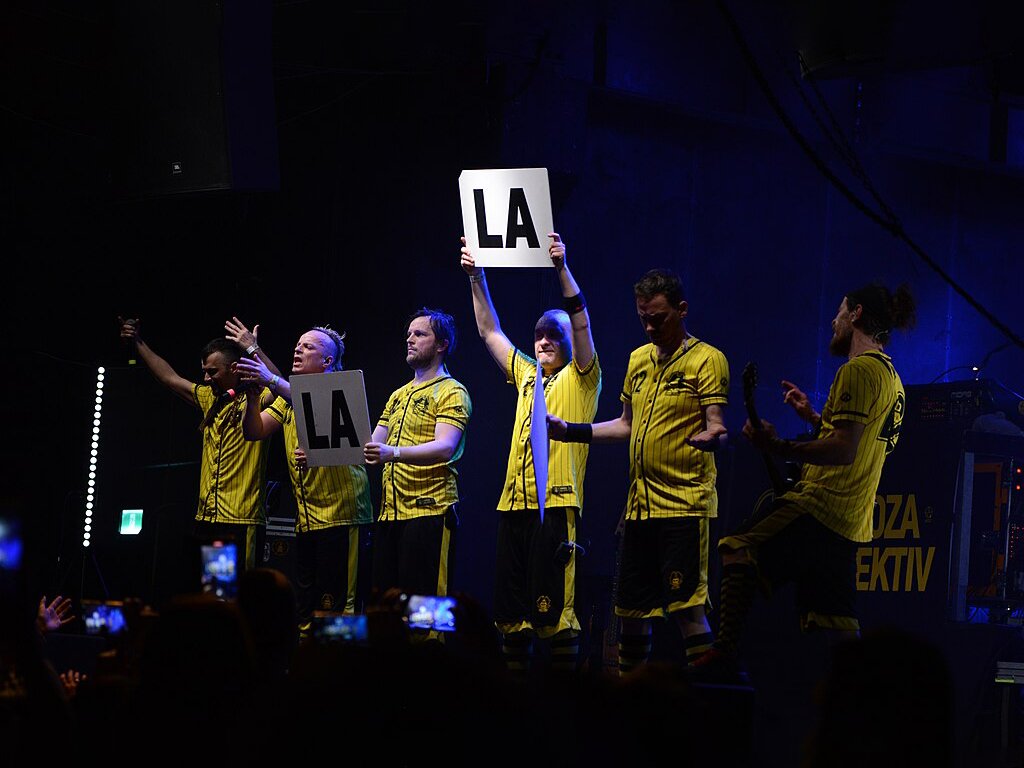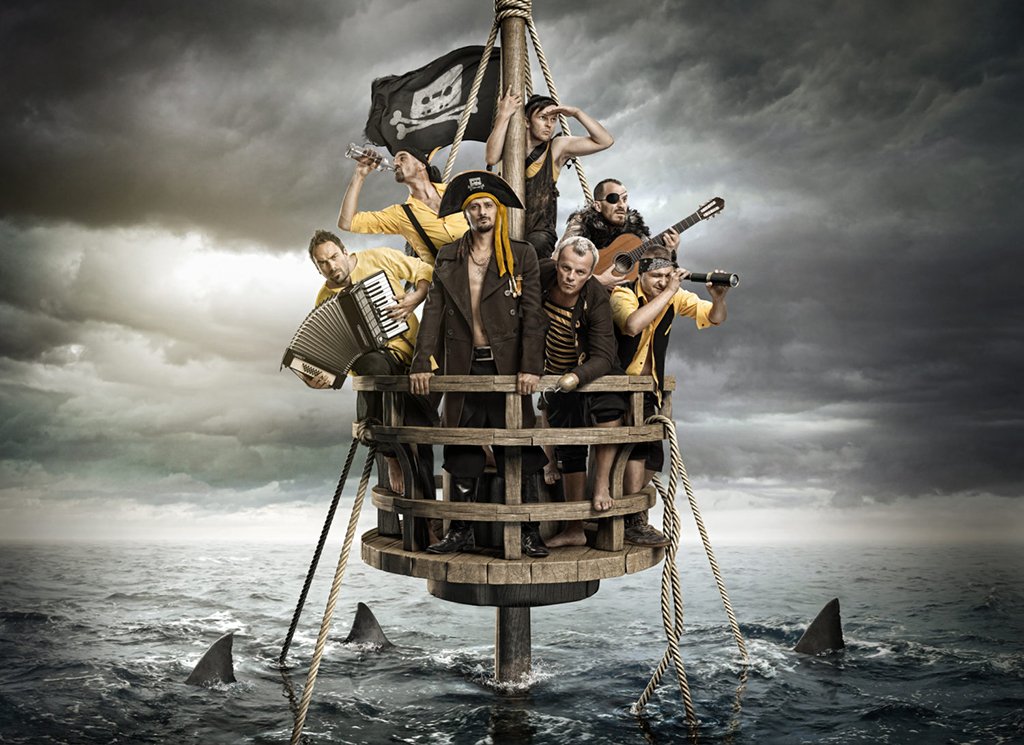Dubioza Kolektiv is one of the most prominent musical groups from Bosnia and Herzegovina. Their music is a unique blend of styles, harmoniously merging reggae, dub, rock, ska, and elements of traditional Balkan music. This group has not only won the hearts of listeners but also become a powerful voice for social and political change.
Origins and Formation
The band was founded in 2003 through the merging of two groups, Ornament from Sarajevo and Gluhog doba from Zenica. The founding members were Brano Jakubović, Vedran Mujagić, Almir Hasanbegović, and Adis Zvekić. The initial lineup also included vocalist Adisa Zvekić, who later left to pursue a solo career.
Vocalist Adis Zvekić recalls forming a precursor to Dubioza Kolektiv back in 1993, during the Bosnian War. With the city plunged into darkness due to power outages, the band often met in the evenings and jammed in complete darkness. This experience forged strong bonds among the members and laid the groundwork for their future success.
Ideology and Musical Uniqueness
From the outset, Dubioza Kolektiv resisted being confined to a single musical genre. Their style is an eclectic mix of influences, combining elements of punk, ska, reggae, rock, and Balkan folk traditions.
As keyboardist Brano Jakubović aptly put it, their music proves that “people can dance and think at the same time.” The band’s lyrics tackle complex and pressing issues such as corruption, social injustice, poverty, and political crises in the Balkans. Their songs, infused with satire and humor, resonate deeply with audiences and make difficult topics more accessible.
Political Activism
Dubioza Kolektiv has never shied away from addressing contentious issues. They once considered participating in the Eurovision Song Contest but ultimately withdrew due to restrictions on political statements. Instead, they released a song titled “Euro Song”, which harshly criticized political conditions in the region.
The band firmly believes that artists have a responsibility to use their platforms to promote positive change. Their songs aim to raise awareness about socio-political problems and inspire action for a better future.
Albums and Achievements
Since their formation, Dubioza Kolektiv has released a series of studio albums that have gained popularity both in their native Bosnia and internationally.
Studio Albums:
- Dubioza Kolektiv (2004) – Their debut album, establishing their musical identity.
- Dubnamite (2006) – An experimental record with a strong dub influence.
- Firma Ilegal (2008) – A politically charged album addressing corruption.
- 5 do 12 (2010) – Highlighting social challenges in the region.
- Wild Wild East (2011) – An attempt to reach an international audience.
- Apsurdistan (2013) – A mix of satire and serious themes.
- Happy Machine (2016) – Energetic and provocative.
- Pjesmice za Djecu i Odrasle (2017) – An album with humor for both children and adults.
- #fakenews (2020) – Critiquing disinformation and modern media.
- Agrikultura (2022) – Reflections on the future of agriculture and ecology.
Live Albums:
- Open Wide (EP) (2004)
The group has headlined major music festivals, including Demofest in 2013, and earned global recognition for their electrifying live performances.
Legacy and Impact
Dubioza Kolektiv’s music is more than entertainment; it unites people and shines a spotlight on issues that matter to everyone. The band has created a distinctive style that transcends genres, nations, and languages. Their songs, brimming with profound messages, will continue to inspire listeners to fight for justice and strive for positive change.

